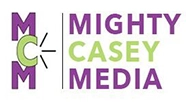Image from Twitter user @Rasha_Fadlallah This will be the third, and last, in my short series on attending the Cochrane Colloquium in Edinburgh in September of this year. In the first post, I talked about what that conference was like; in the second, I shared an overview of Cochrane as a global movement to make medical evidence work better for clinicians, patients, and communities around the world. This last one will talk about some of the issues Cochrane is facing, as an organization and as a proponent of science in a world that seems to have a rising suspicion of science and research. I watched the Cochrane Colloquium open not just with a welcome to Edinburgh – although there was that, in spades – but with a behind-the-scenes PR flame war that wound up sucking up the the headline space for Cochrane that week, and in the weeks since. I talked about it in my podcast the following week, and have watched the conversation go by since my first day on the ground at the Edinburgh International Convention Center. The short-snort version of what happened is this: On September 14, the Friday before the Cochrane Colloquium was to kick off (on Sunday the 16th), a letter went up on the Cochrane Nordic Center site’s News page from Dr. Peter Gøtzsche, wherein he announced that he had been expelled from the Cochrane governing board by a slim majority vote by that board. He cast it as a moral crisis, caused by Cochrane’s too-chummy relationship with the pharmaceutical industry. That letter has since disappeared from the Cochrane Nordic pages, the link is to a PDF on the Mad In America site. Cochrane itself stayed silent for 24 hours, putting up its response to Gøtzsche’s letter late on Saturday, referencing only an independent review of “complaints related to…

It was recently revealed that an Excel error contributed to the European fiscal crisis, and a continuing global economic recession/depression. Paul Krugman called the revelation the Excel Depression in the NY Times. Certainly lives are at stake when the success or failure of large economies are at risk, but not nearly as many lives as are at stake every day given the lack of transparency (and even, in some cases, plain truth) in bioscience research and medical outcomes reporting. Ben Goldacre gave a barn-burning TED talk, “Battling Bad Science,” in 2011. He gave another one in 2012 in which he called the data manipulation in scientific research the “cancer at the core of evidence-based medicine.” His point? We cannot make a meaningful decision in the absence of ALL the data. Tim Berners-Lee, the man who invented the actually-useful-to-humans WWW part of the Internet, has consistently called for raw data – ALL the raw data – NOW. Paul Levy, the former CEO of Beth Israel Deaconess Hospital, recently blogged about the failure of the Journal of Pediatric Surgery to reveal, in a report on a surgery for sunken-chest deformity, a widely-reported death of a teenage boy after said surgery, even though that boy’s case is used as an example of avoidable medical error in safety bootcamps for medical interns and residents. Boggles the mind, doesn’t it? Even if the data is fully reported, the PR geeks who write up the announcement of results might get that report 100% wrong. Witness the recent contretemps over a University of Chicago study on patient engagement, shared decision-making, and healthcare cost control. A full outline of that mess, by ePatient Dave deBronkart in Forbes, will give you 411 on that story. The Cliff’s Notes: it was a post-discharge survey, not a full study; it measured attitudes, not outcomes; and the press release was sent out on…
When you hear the word “monopoly,” does it fill you with a warm and fuzzy feeling? (Unless you’re Hasbro, you really should say no, unless you’re a cyborg.) Healthcare is a monopoly. We can’t DIY cancer treatment, or surgically repair a broken hip for ourselves, so we have to go to the medical-industrial complex to regain our health if we wander into the weeds, health-wise. We also have deep difficulty accessing pricing information. I’ve talked about that here over the last few years. Maybe not a monopoly in the financial-reg sense of the word, but it sure is mighty like a game of Monopoly. This “chaos behind a veil of secrecy” (all credit for that phrase belongs to healthcare economist Uwe Reinhart) has created the impression in healthcare customers that there’s no way to tell what something will cost before you buy it. You checks the box and takes yer chances. No Get Out of the Hospital Free cards. No pass-the-admissions-counter-collect-$200 option. That’s a rotten way to run a railroad (one of the original monopoly industries in US history), and an even worse way to run a hospital. Dan Munro wrote about this, and the star-chamber cabal that actually sets the prices in healthcare, the RUC, on Forbes.com yesterday. I’ve talked about the RUC myself. And the search for price transparency, which seemed such an outlier activity just a couple of years ago, is now popping up in the Well blog on the New York Times site, as well as on Reuters. The Reuters piece has the addition bonus of quotes from my buddy Jeanne Pinder, founder of ClearHealthCosts.com. (Yesterday was a big day in medical price transparency.) This is the central reason I registered the hashtag #howmuchisthat with Symplur, the healthcare hashtag registry. We all have to start demanding that prices be visible, and that the RUC stop cabal-ing…



